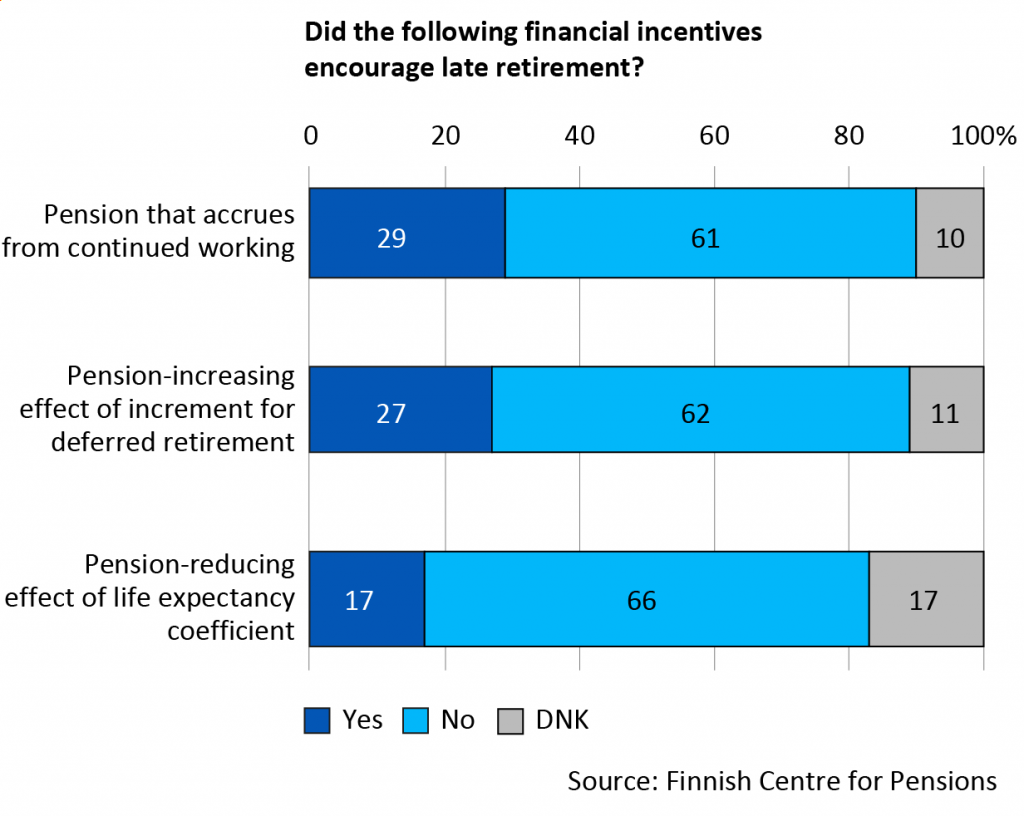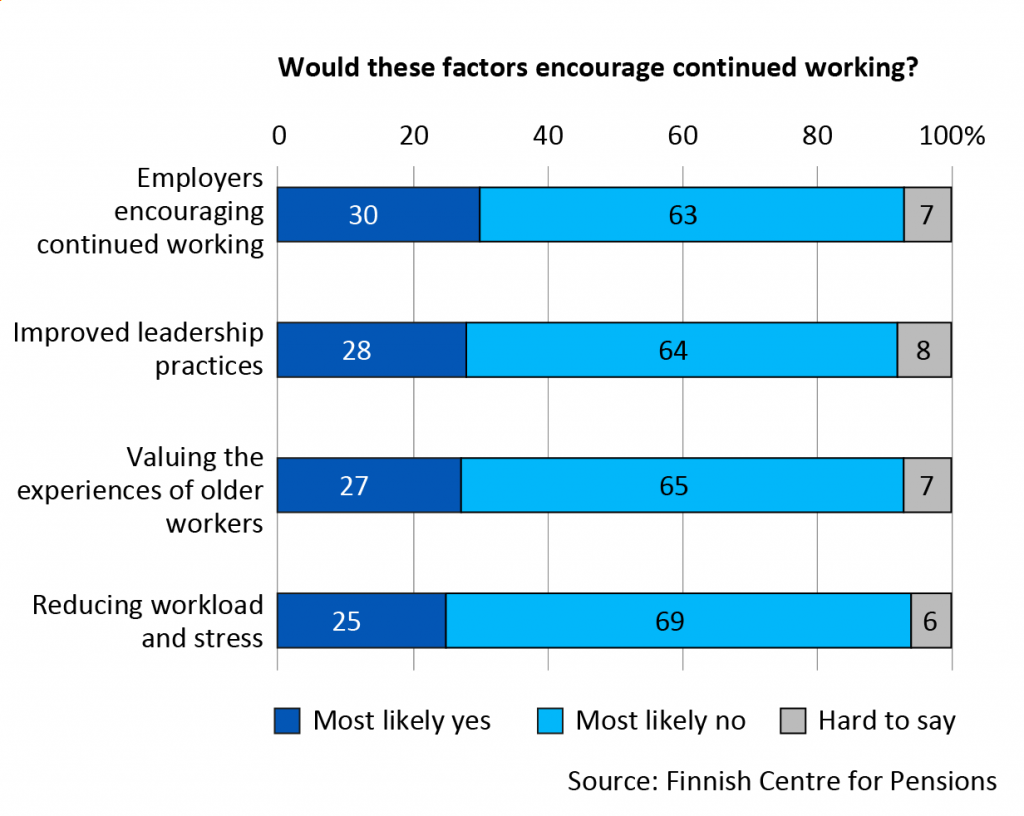What would keep people working longer? – Both money and employer attitudes have an impact

According to a recent survey of newly retired people, financial incentives have contributed to later retirement for about one third of the respondents. However, just under one third feel that employer encouragement, improved leadership skills or valuing the experience of older workers would have persuaded them to continue working.
These findings come from a survey conducted by the Finnish Centre for Pensions among people who retired from gainful employment with an old-age pension in 2019-2021.
According to the survey, financial incentives are more effective among men, those who receive a higher pension and those who perceive their health and well-being as good.
On the other hand, working conditions and employer attitudes are important for women, those with lower pensions and those who rated their pre-retirement health and well-being as poor.
Incentives well known – but only some influence decision to continue working
The survey shows that pre-retirement awareness of pensions is fairly high. For example, almost all respondents had checked how much pension they would receive when they retired.
Nine in ten also said they were aware of the increment for late retirement, which is paid when retirement is deferred past the retirement age for a full old-age pension. Seven in ten said they were familiar with the life expectancy coefficient, which reduces the amount of the pension based on increases in average life expectancy. “Almost one third of the respondents said that the pension that accrues from continuing to work or the increase for deferred retirement had encouraged them to retire later. Slightly less than one fifth felt that the pension-reducing effect of the life expectancy coefficient had persuaded them to work longer,” says economist Satu Nivalainen of the Finnish Centre for Pensions.

Graph’s data in accessible Excel file
Employer attitudes and working conditions important incentives for continuing to work
The study shows that factors related to employer attitudes, such as employer encouragement to continue working, improved leadership practices and valuing the experience of older workers, are important incentives to continue working. Just under one third of those who had recently retired felt that this would most likely have encouraged them to continue working.
Factors related to working conditions, such as reduced workload, less stress and lighter work tasks, were also frequently cited in the responses as incentives to postpone retirement.
“Changes in employer policies and working conditions would have encouraged continued working, particularly for those who felt that their pre-retirement working situation was not the best possible in these respects. Improved leadership practices would have encouraged people to continue working, particularly those who felt that their pre-retirement work situation was not well managed.

Graph’s data in accessible Excel file
Employers should be encouraged to change
According to Nivalainen, workplace measures are just as effective – and in some cases more effective – than financial incentives in postponing retirement. Employers should be encouraged to change their attitudes, working conditions and other factors related to work in the direction desired by workers approaching their retirement age.
“Given the right conditions, many workers would be willing to continue working,” concludes Nivalainen.
Most would not change their time of retirement
Eight in ten respondents were satisfied with the time they had chosen to retire. More than one tenth would have liked to retire later.
Respondents who were unaware of the impact of the life expectancy factor or the increase for deferred retirement were more likely than others to wish they had retired later.
“Awareness of how the timing of retirement affects the amount of the pension should be spread more widely among the age groups planning to retire. In this way we could avoid situations where people retire with a full pension earlier than they would have liked due to a lack of information,” Nivalainen concludes.
Almost 3,400 persons retiring with an old-age pension between 2019 and 2021 took part in the survey.
Study
Financial incentives or working conditions – What would keep people working longer?
Previous studies relating to the survey
Working in retirement – Survey of persons retiring from work on an old-age pension in 2019-2021 (Julkari)

